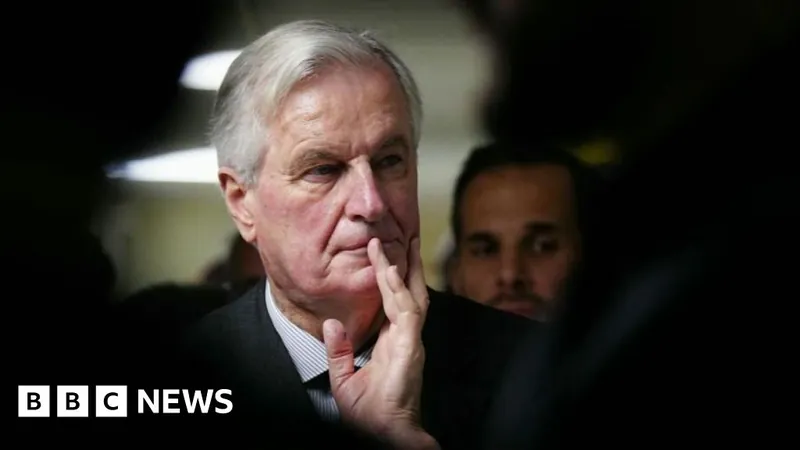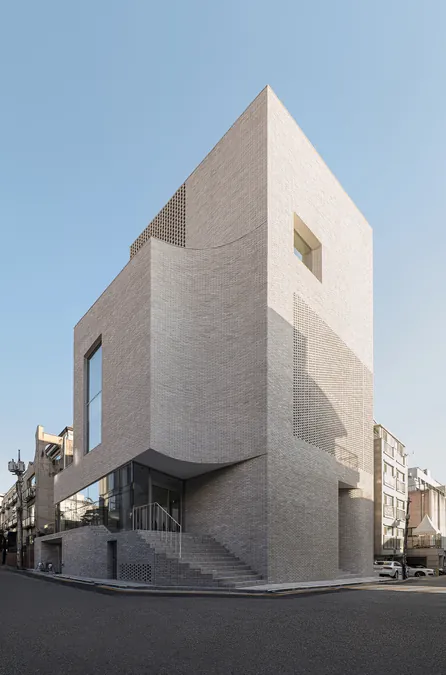
French PM Michel Barnier on the Brink: What the No-Confidence Vote Means for France
2024-12-04
Author: Amelia
Introduction
In a dramatic turn of events, Prime Minister Michel Barnier of France is faced with an impending no-confidence vote in the National Assembly set for 19:00 local time (18:00 GMT). With all signs pointing to a likely approval of the motion, Barnier's government could soon come to an abrupt end, just 90 days after his selection by President Emmanuel Macron.
Background
Formerly the EU's chief negotiator for Brexit, Barnier's short tenure has been marked by political turmoil. Currently on a state visit to Saudi Arabia, Macron expressed his faith in Barnier's ability to survive this latest challenge, emphasizing that the nation's interests take precedence over party politics. Yet, the left-wing New Popular Front (NFP) and Marine Le Pen's far-right National Rally (RN) have publicly committed to voting against him, leaving Barnier's fate hanging by a thread.
Crisis Point
The crisis reached a boiling point following Barnier's controversial decision to employ special powers to push through the 2025 budget without parliamentary approval. This move incited outrage from both opposition parties, who swiftly filed motions of no confidence as a direct response to his actions. This controversial approach may result in an unprecedented political upheaval, as Barnier's administration is already teetering on the edge of collapse.
Reasons for Drastic Measures
So, why has Barnier taken such drastic measures? His appointment came after contentious snap elections resulted in a fragmented parliament, where no party secured a clear majority. This political backdrop left Barnier in an unenviable position, needing either the NFP or RN's support to advance his legislative agenda. The NFP, frustrated by his appointment and the rejection of their own prime ministerial candidate by Macron, has continuously vowed to oppose him, deeming his budget—which aimed to reduce the deficit by €60 billion—unacceptable.
Alienation of Allies
Despite making concessions to the RN, Barnier found himself devoid of any reliable allies. With no other option left, he invoked special powers to advance the budget, further alienating the opposition and setting the stage for today's vote.
Final Efforts and Predictions
As anticipation builds for the outcome, Barnier made a final effort to sway assembly members during a televised address, urging them to consider "the common and superior interest" of the country. However, analysts predict the no-confidence motion will pass. If it does, it will mark the first such government collapse in France since 1962—a significant historical moment for the nation.
Aftermath and Future Elections
Should Barnier's government fall, he may be asked to continue in a caretaker role until Macron identifies a suitable successor—a feat that proved challenging during his previous search for a prime minister. The possibility of appointing an unelected technocrat government exists, but such arrangements typically face challenges to their legitimacy and tend to be brief.
Conclusion
Importantly, immediate new elections are off the table, as the French constitution prohibits holding elections within a year of previous ones—July's elections have locked the political landscape for the foreseeable future. As the clock ticks down to the critical vote, France stands at a pivotal juncture that could reshape its political landscape once again.









 Brasil (PT)
Brasil (PT)
 Canada (EN)
Canada (EN)
 Chile (ES)
Chile (ES)
 España (ES)
España (ES)
 France (FR)
France (FR)
 Hong Kong (EN)
Hong Kong (EN)
 Italia (IT)
Italia (IT)
 日本 (JA)
日本 (JA)
 Magyarország (HU)
Magyarország (HU)
 Norge (NO)
Norge (NO)
 Polska (PL)
Polska (PL)
 Schweiz (DE)
Schweiz (DE)
 Singapore (EN)
Singapore (EN)
 Sverige (SV)
Sverige (SV)
 Suomi (FI)
Suomi (FI)
 Türkiye (TR)
Türkiye (TR)